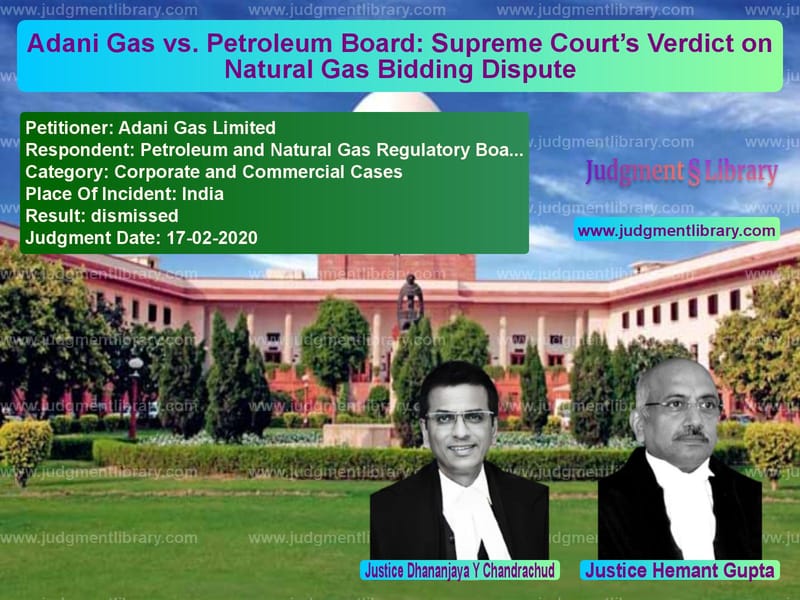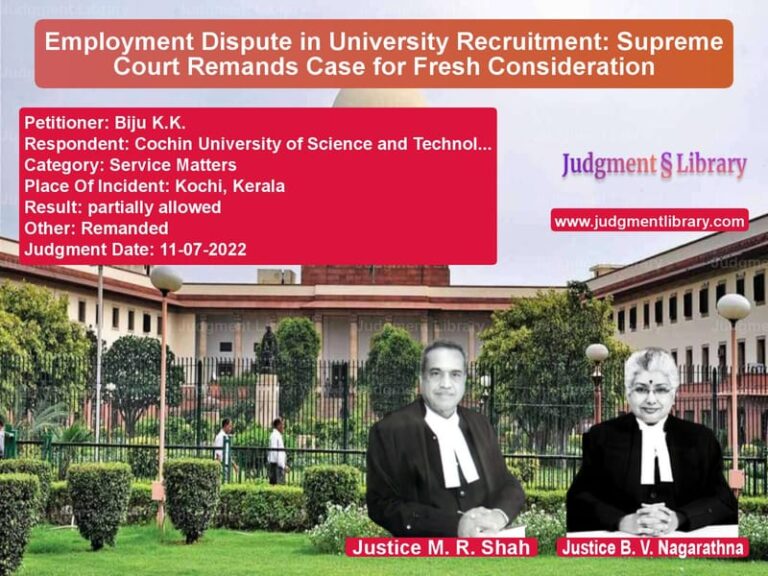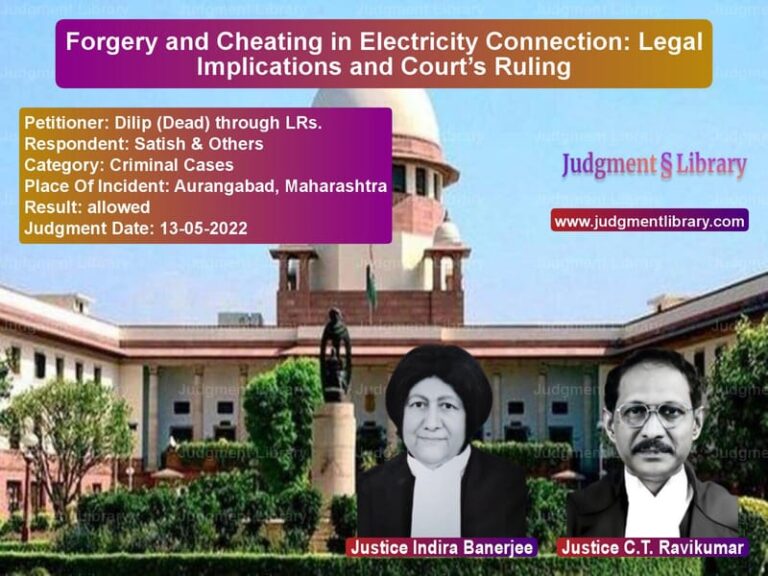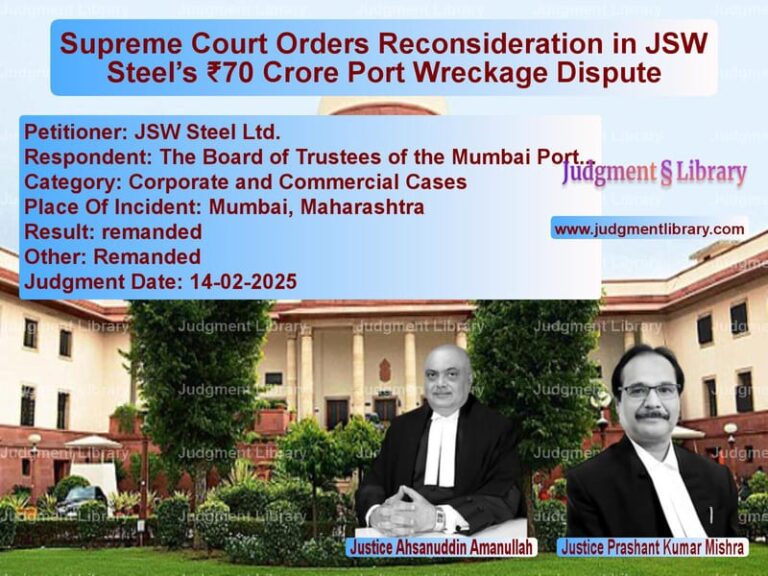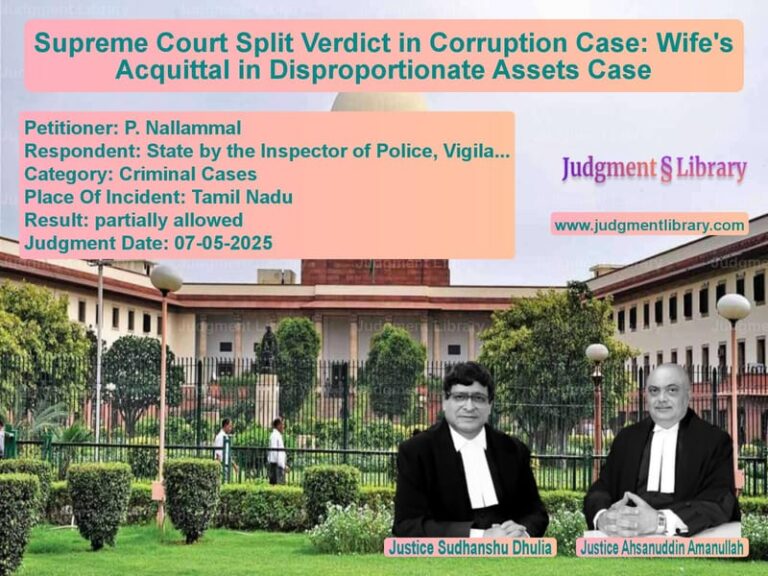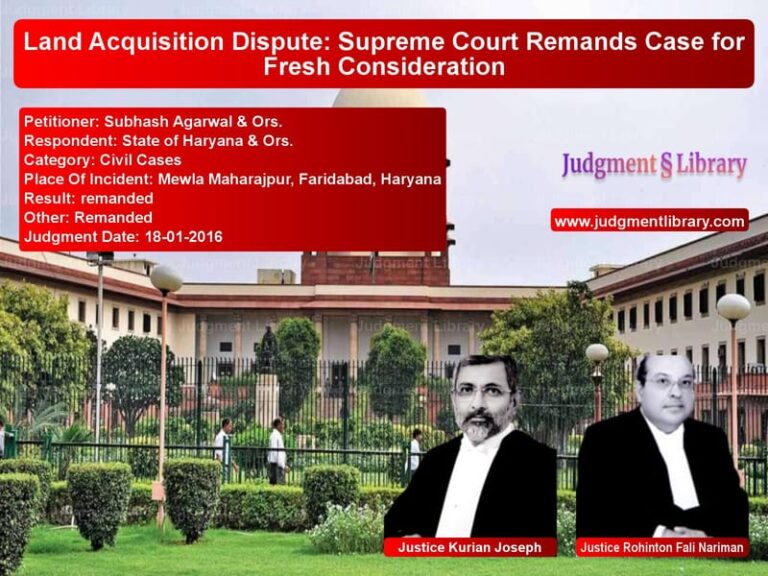Adani Gas vs. Petroleum Board: Supreme Court’s Verdict on Natural Gas Bidding Dispute
The case of Adani Gas Limited vs. Petroleum and Natural Gas Regulatory Board is a crucial judgment involving a dispute over the bidding process for city gas distribution (CGD) networks. The Supreme Court’s ruling clarifies the scope of regulatory authority and procedural fairness in natural gas licensing.
The appeal arises from the 2018 bidding round conducted by the Petroleum and Natural Gas Regulatory Board (PNGRB), which granted authorizations for CGD networks in various geographical areas (GAs). The dispute centered around the Board’s criteria for evaluating bids, particularly the threshold of projected household gas connections.
Background of the Case
The ninth round of bidding was announced by PNGRB in 2018, with the goal of expanding natural gas infrastructure across multiple districts. The Board issued a press release on September 14, 2018, listing successful bidders. The areas of contention in this case included:
- Puducherry District (GA 51)
- Kanchipuram District (GA 61)
- Chennai & Tiruvallur Districts (GA 62)
Adani Gas Limited challenged the grant of authorization, arguing that the bidding process was flawed and that certain awarded bids exceeded reasonable projections of household gas connections.
Arguments by the Petitioner
Adani Gas Limited presented the following key arguments:
- The PNGRB had unfairly accepted bids that projected household gas connections beyond the 100% threshold based on 2011 Census data.
- The Board’s own internal note, dated July 23, 2018, had set a guideline that bids projecting household gas connections beyond the census estimate would be considered unreasonable.
- Despite this guideline, the Board selectively applied it to some bidders while granting exemptions to others.
- For example, Torrent Gas Private Limited, which won the bid for GA 62 (Chennai & Tiruvallur), had quoted gas connections that exceeded 150% of the projected households.
- The Board’s process lacked transparency, as it granted hearings to certain bidders while ignoring objections from others.
Arguments by the Respondent
The Petroleum and Natural Gas Regulatory Board defended its decision with the following arguments:
- The 2%-100% range proposed in the Board’s internal note was only a guideline, not a binding rule.
- Bidders were evaluated on multiple factors, including infrastructure commitments and financial capabilities, not just projected gas connections.
- Household projections based on census data were only one factor in the bid evaluation, and the Board retained discretion to accept reasonable bids beyond the census threshold.
- Entities like Torrent Gas justified their projections based on expected urbanization and economic growth.
- The Board provided opportunities to bidders with the highest composite scores to justify their estimates, which was consistent with fair competition practices.
Supreme Court’s Key Observations
The Supreme Court analyzed the legal framework under the Petroleum and Natural Gas Regulatory Board Act, 2006, and the applicable regulations governing CGD bidding. Key observations included:
- The Board’s internal note was an internal guideline and not a formal rule that could override the bidding criteria set in the regulations.
- The bidding process involved multiple parameters, and no single criterion (such as projected household connections) could be determinative.
- The Board had discretion in assessing bids and was not bound to strictly enforce the 100% household projection limit.
- The principle of fair competition required that the Board evaluate bids on a case-by-case basis rather than mechanically applying rigid thresholds.
- The Supreme Court found that the Board’s decision to allow certain bidders to justify their projections while rejecting others was based on reasonable discretion rather than arbitrariness.
Important Judicial Statements
The Supreme Court made significant remarks on the role of regulatory authorities and fair bidding procedures:
“Regulatory bodies must balance the need for competitive bidding with flexibility in decision-making to accommodate economic realities and urban growth projections.”
The Court further stated:
“The Board’s internal guidelines are not binding legal mandates; discretion must be exercised within the overall framework of fair and transparent competition.”
Final Verdict
The Supreme Court dismissed the appeal by Adani Gas Limited and upheld the authorizations granted by PNGRB. The ruling reaffirmed the Board’s discretion in bid evaluation while ensuring fairness and transparency in future bidding rounds.
Petitioner Name: Adani Gas Limited.Respondent Name: Petroleum and Natural Gas Regulatory Board & Ors..Judgment By: Justice Dhananjaya Y Chandrachud, Justice Hemant Gupta.Place Of Incident: India.Judgment Date: 17-02-2020.
Don’t miss out on the full details! Download the complete judgment in PDF format below and gain valuable insights instantly!
Download Judgment: Adani Gas Limited vs Petroleum and Natura Supreme Court of India Judgment Dated 17-02-2020.pdf
Direct Downlaod Judgment: Direct downlaod this Judgment
See all petitions in Company Law
See all petitions in Corporate Governance
See all petitions in unfair trade practices
See all petitions in Judgment by Dhananjaya Y Chandrachud
See all petitions in Judgment by Hemant Gupta
See all petitions in dismissed
See all petitions in supreme court of India judgments February 2020
See all petitions in 2020 judgments
See all posts in Corporate and Commercial Cases Category
See all allowed petitions in Corporate and Commercial Cases Category
See all Dismissed petitions in Corporate and Commercial Cases Category
See all partially allowed petitions in Corporate and Commercial Cases Category

